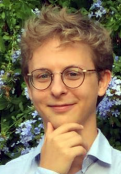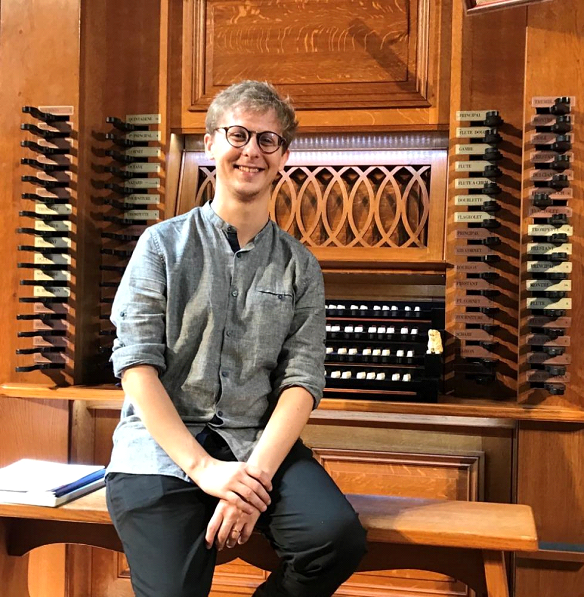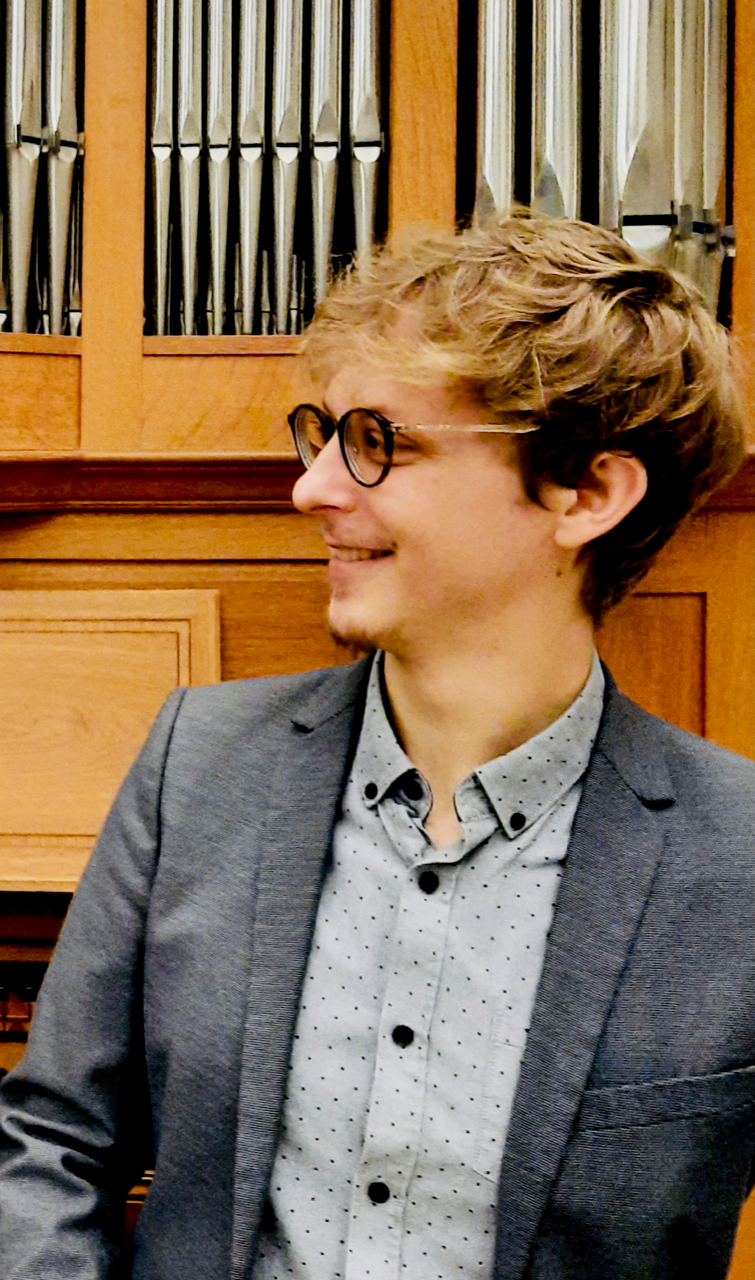
Interview with Arthur Saunier by Nayoung Kim Millius, May 2023
 .
.
Could you tell us about your first encounter with the organ? How did you decide to pursue the path of a professional musician?
I encountered the organ at a very early age, because I began lessons at the Caen Conservatory with Lynne Davis at 8 years old. Strangely, even though I came from a very religious Catholic family, I do not have any recollection of the instrument in the church when I attended Mass. In effect, my interest was probably piqued by listening to the many Bach CDs at home; that encouraged me, so to speak, to put my foot in the stirrup. Initially, it was more the music for the organ that prompted my desire to play the instrument. But very early on, I knew that my goal was to become a professional musician.
However, I studied at the university in Nice, thinking that this would provide me with a security net in case things did not work out as planned, but at the same time, I really did not entertain the idea of any other profession than that of a musician.
I envisioned myself as a pianist, but contrary to that expectation, life had other plans. I became an organist, which suits me very well.
What is the greatest attraction of this instrument for you?
Its variety of sound. The infinite possibilities given the variety of stops (or registers on each organ) ensures that the organist has at his fingertips new sounds to use as he wishes. I also like the fact that no one organ is like any other; each is unique. And finally, one cannot fail to mention the mechanics of the organ. In my opinion, it remains one of the most beautifully conceived instruments.
What are the principal difficulties that you encounter as an organist ? (Technical problems, programming, organizational and professional challenges?)
In my opinion, the biggest difficulty is linked to the range of competences that is required of an organist. The basic thing of course, let’s say, is to be able to play the instrument, which is by no means an easy feat: to know how to play with both your hands and your feet, to master the mechanics of the organ, to be at ease with music that is often contrapuntal in nature, etc. Then, there is the liturgical aspect: to be capable of accompanying the parishioners as they sing the hymns, not forgetting to mention the ability to transpose as well as to improvise.
And finally, the role of the concert organist: to be able to give an hour- long concert, to present and explain the pieces to the public. All these factors require a serious and definitive approach. And if you add to that the diversity of the instruments and musical styles, it can be as challenging as playing in any sports tournament.
Then there is the logistical difficulty of accessing your instrument in the church;
Tell us a bit about the program for the AOA concert, does it have a particular meaning that you wish to share with the audience?
The program that I have proposed for the festival, is based on an old whim that I had. For some time, I have wanted to play exclusively some works from the 18thc and more specifically, Mozart’s music for the organ. Amplifying on this, I have the impression that we dare to play only a smidgeon of the music that exists in this Bermuda triangle of repertoire, between the death of J.S. Bach and the birth of Mendelssohn, a domain reserved for the harpsichord and the piano. The organ, however, was also prominent at this time. One only has to read Mozart’s letters to be assured of his interest in this instrument. Each new voyage that he undertakes, chronicles a visit to an organ in the vicinity.
The setting in the Auditoire Calvin, a small church with the organ placed at the front and on a level with the public, reminds me of the ambiance in 18thc salons when chamber music was performed. The Auditoire, as a venue, is similar and easily lends itself to the type of music I have chosen.
What, in your opinion, is the place of organ music today, considering the fact that a large part of its repertoire has been composed for the church service. What will be its role in the future?
I think that the role of music in the churches has not changed. It remains as an amplification of the spiritual essence of the church service, and it is art that is such a familiar part of all our lives. One only needs to attend a church funeral service to understand. And even though neither the protestant, nor the catholic churches are experiencing their most ideal time in history, I sincerely doubt that that these services will disappear any time soon. The same can be said for man’s search for spirituality.
The true question, I think, is found in the choice of music. It is a difficult question, especially when asked of a classical musician whose principal occupation is to play works of the past, often ones that have been taken from profane sources. I think that we must remain as eclectic as possible, for we are, in truth modern human beings, beset by many contradictory influences.
The organ must continue to have its special place, since it is the guardian of a thousand-year-old tradition that has existed for centuries. But it is the organists' task to promote other types of repertoires, whether sacred or secular, ancient or modern.
 .
.
What is your opinion on the role of organists and musicians for the younger generation?
In concurrence with the answers, I’ve given above, I think that we should take on the role of teacher when we present organ music to the public. And acting as music historians, we should help people to appreciate a beautifully ornamented chorale or a fugue by clearing explaining what it is. Again, I emphasize the fact that most of the music that we play is centuries old and it is not for everyone. But it is up to us to present this music as we should with conviction but also with an overall understanding of its impact on the public. That is the reason why I, myself, have increased the number of concerts with commentaries at the Temple de Madeleine.
A last word for the public who will attend the Festival, Souffle de Printemps?
I look forward to seeing many of you at my concert as well as some of my colleagues. I recommend the Auditorium Calvin as an ideal place to listen to beautiful music but also to discover a little more this exceptional instrument, the organ.